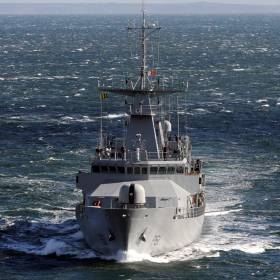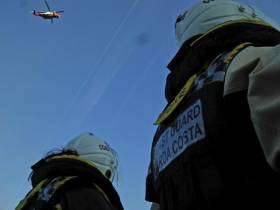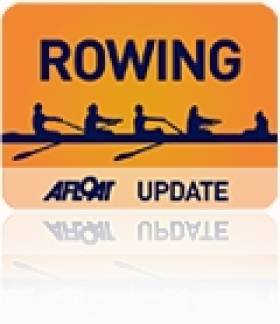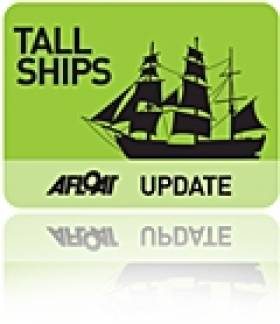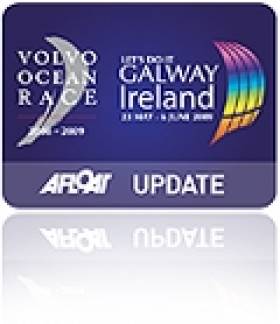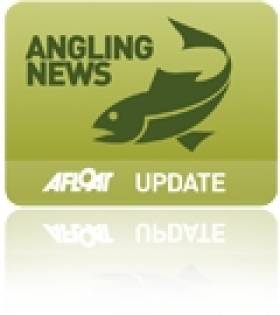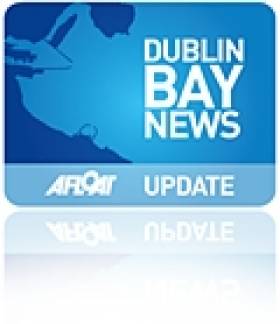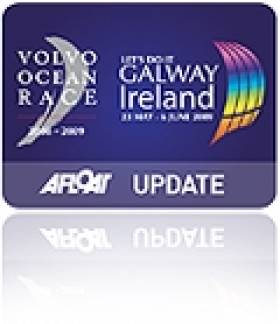Displaying items by tag: Volunteers
Volunteers Sought by Naval Service to Fill Gaps
#navy - Patrol ship captains of the Irish Naval Service are being forced to seek ‘volunteers’ to crew their vessels due to decreasing numbers available.
The Irish Examiner has learned the Naval Service is desperately trying to crew a nine-ship fleet with numbers which cannot service seven.
A common practice is emerging where personnel, assigned to specific ships, are being asked to fill gaps on other ships which primarily conduct fishery patrols. And, despite the shortage, the Government is still pressing ahead with plans to purchase a new ultra-modern multi-role vessel (MRV) which could cost up to €200m.
Chronic shortages, however, exist in many sections of the Naval Service. According to the Defence Forces, the minimum number of personnel required to run the Naval Service is 1,044.
But the official and latest figures show a total of 974 which includes 195 personnel engaged in professional qualification (PQ) training who cannot serve at sea. They include recruits and officer cadets who are undergoing basic training, technical trainees, and Ordinary to Able Rate (OARs) trainees.
Further reading on this crew-shortage story can be seen by clicking this link.
Coastguard Volunteers Want Safeguards From Government
#Coastguard - Coastguard volunteers are calling for the service to be designated as a ‘standalone primary response agency’, as the Irish Examiner reports.
A four-person delegation representing some 1,000 volunteers with the Irish Coast Guard pleaded their case with front bench TDs at Leinster House last week for the search and rescue side of the service to be safeguarded along the lines of the Garda, ambulance and fire services.
Among their complaints, the volunteers cite political manoeuvring at the expense of the service, along with “decisions being made by managers” in the Department of Transport “who have no direct involvement with the emergency services”.
In other coastguard news, volunteers from the Doolin unit were involved in the recovery of the body of a woman following a three-day search off the Cliffs of Moher. The Irish Examiner has more on the story HERE.
Rowing Ireland Seek Voluntary Coaches and Managers
#RowingPosts: Rowing Ireland are seeking expressions of interest from suitably experienced, ambitious and enthusiastic individuals for the voluntary roles of coaches, managers and drivers for the Junior, Coupe, Under 23 and Senior squads for the 2014 international season.
Interested candidates should send a brief Cover Letter by email to [email protected]
The deadline for applications is the 30th September 2013.
Volunteers Wanted for Dublin Tall Ships Festival Info Stand
#TALL SHIPS - Sail Training Ireland is seeking more volunteers to help out at the Tall Ships Races Festival information stand from next Thursday 23 to Sunday 25 August.
Michael Byrne of Sail Training Ireland for Youth Development says organisers need enthusiastic people that have an interest in sail training who are willing to spend a half day on the stand on Thursday afternoon from 4pm to 9pm or on Friday from 10am to 9pm.
The stand is located at the entrance to the Naval Service vessel LE Emer and will be a great location to get a feel for the festival.
It's also hoped that some of the trainees arriving on the ships will "bring some exciting tales to share of their crossing of the Bay of Biscay", says Byrne.
If you are interested, please call Michael Byrne at 01 887 6046 (office) 086 034 6038 (mobile) or send an email to [email protected] with your name and phone number and times of interest.
Volunteers Wanted for VOR Galway Festivities
#VOLVO OCEAN RACE - Organisers of the Volvo Ocean Race finale in Galway are appealing for 2,000 volunteers to help make the stopover a rousing success.
The eight-day festival of the marine, sport, arts and culture, entertainment and food to celebrate the arrival of the Volvo Ocean Race competitors as they cross the finish line is expected to attract as many as 700,000 visitors to the City of the Tribes from 30 June to 8 July.
Let's Do It Galway are looking for students, retirees and "anyone in the Galway community" willing to commit from two to nine days during the week to take part in what they describe as "a great way to make new friends and boost career prospects while boosting Galway and Ireland in the eyes of the world".
All volunteers will be invited to a special 'wrap-up gala', and organisers also promise prizes and surprises along the way.
Information sessions will take place throughout April and May in and around Galway, and applicants will be matched to roles in early June.
The Galway Independent has more on the story HERE.
Corrib Anglers Donate to Rescue Boat
#ANGLING - Days after the tragic death of an angler on Lough Corrib, as previously reported on Afloat.ie, the Collinamuck Angling Club will donate €5 from every entry in the upcoming open wet fly competition on 22 April to the Corrib Mask rescue boat.
"The important work that is carried out by the volunteers of the Corrib Mask rescue boat is sometimes forgotted by us anglers," the club's Lionel Flanagan told the Galway Advertiser at the launch of this year's contest.
"We hope this small token will help the Corrib Mask rescue boat continue to provide this vital resource to Connacht anglers and visitors alike.”
Harbour2Harbour Dublin Bay Walk Coming Soon
#DUBLIN BAY NEWS - The annual St Patrick's Day Harbour2Harbour Walk in aid of mental health charity Aware is just a few weeks away.
The 16.2 mile walk around Dublin Bay begins at 10.30am on Saturday 17 March, taking around five hours to complete, and it's your choice whether you begin at Howth Harbour and walk to Dun Laoghaire Harbour or vice versa.
Organisers describe the event as "a great day out for family, friends and individuals, all of whom get a great sense of achievement and a great view of Dublin Bay."
Of course the main aim of the day is to raise funds for Aware, and once registered to take part you will receive a fundraising pack containing letters, information, maps and sponsorship cards. You can also set up your own fundraising page on MyCharity.ie.
The registration fee is €15 per individual or €25 for a group of 2 (children under 16 are free). Advance online registration is now available at the Aware website HERE. Late registration will be available on the morning of the walk itself.
Volunteers are also required to help with late registration on the morning of the walk and act as stewards at various points along the route. If you can help please call 01 661 7211 or e-mail [email protected].
More information about the day can be found at Aware's Harbour2Harbour webpage HERE.
Search for Glandore Fishermen to be Wound Down
#NEWS UPDATE - The search for two fishermen still missing after their boat went down off West Cork nearly three weeks ago will be wound down next week, The Irish Times reports.
Search teams have been combing the area for any trace of Michael Hayes (35), skipper of the Tit Bonhomme, and crewman Said Mohammed (23) after the fishing vessel ran aground in rough seas near Adam's Rock, at the mouth of Glandore Harbour, on Sunday 15 January.
The bodies of Kevin Kershaw (21), Attia Shaban (26) and Wael Mohammed (35) were recovered in the days and weeks following the tragedy. Only one of the six-person crew - 43-year-old Abdul Mohammed – is confirmed to have survived.
As previously reported on Afloat.ie, last weekend saw more than 90 divers embark on an extensive search of the wreck site and the Glandore bay area, with hundreds more volunteers searching the coastline and on land.
Volvo Ocean Race Brings Galway and Abu Dhabi Closer Together
#VOLVO OCEAN RACE - A golden dhow presented to the city of Galway by the Abu Dhabi Sailing and Yacht Club marks the new connection between these host ports of the 2011-2012 Volvo Ocean Race.
The Galway Advertiser reports on the Galway-Abu Dhabi Maritime Cultural Exchange initiative, which has already seen a Galway hooker race against traditional Arabian dhows in the Persian Gulf.
Both cities have been "engaged for many years with restoration of traditional boats and revival of sailing skills," says the paper.
Their co-operation is being seen as a model for using sailing as a catalyst to bring different cultures together. And the gesture will be reciprocated when Galway hosts the race finale this July, as six dhows and 60 Emirati crew will be hosted in the city for an exhibition race against a fleet of Galway hookers.
Meanwhile, Galway's Tidy Towns committee is determined to make the city look its best in time for the race's arrival.
The City of the Tribes scored well in 2011 after a long absence, but is looking to take things a step further for 2012.
Interested volunteers can contact the Galway Volunteer Centre, Mill Street at 091 539 930.
Coastguard 'Overwhelmed' By Response to Glandore Search Appeal
#NEWS UPDATE - The Irish Coast Guard told RTÉ News that it has received an "overwhelming" response from the diving community to its appeal to join the search in West Cork for two missing fishermen.
Skipper Michael Hayes and crewman Saied Ali Eldin are still missing after the fishing vessel Tit Bonhomme ran aground in rough seas near Adam's Rock at the mouth of Glandore Harbour.
Only one of the six-person crew - 43-year-old Abdul Mohammed – is confirmed to have survived. The bodies of Kevin Kershaw (21) and Attia Shaban (26) were recovered last week, while the remains of Wael Mohammed (35) were found by civilian divers near the wreck site last Sunday.
Coastguard manager Declan Geoghegan said that search teams now have the 48 divers required to conduct an exhaustive search of the wreck area and urged further volunteers not to travel for the moment.
The search will concentrate on the waters between Adam's Rock and Long Point, where much of the debris from the trawler has washed up.
RTÉ News reports that more than 200 volunteers are assisting the coastal search by boat and on land, which is being co-ordinated from the village of Union Hall.


























